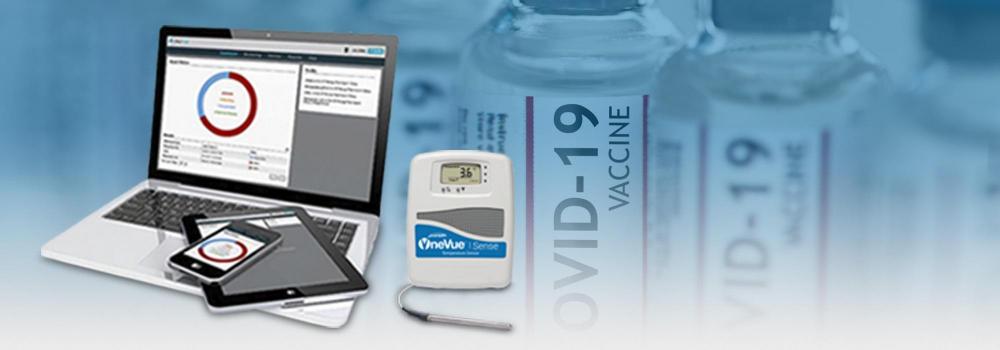UPDATED: 11/9/20
Don’t get caught without proper temperature monitoring devices when you receive your COVID-19 vaccines. Primex OneVue technology will help.
News related to COVID-19 continues to inundate broadcasts, newspapers, and webpages. On the heels of the Food and Drug Administration recently approving remdesivir as a treatment for COVID-19, Pfizer announced its “biggest ever” vaccination distribution campaign for COVID-19 vaccines. Despite this large-scale distribution plan, the initial vaccine supply is expected to be limited, making hospitals, health systems, and pharmacies think about how they can safely store these valuable assets — which will need to be at ultralow temperatures — to maintain efficacy and avoid any potential loss.
When Will a COVID-19 Vaccine Be Ready?
The FDA has stood strongly when it comes to maintaining the scientific process of approving potential COVID-19 vaccines. The agency recently called together an advisory group meeting to discuss when and if widespread use of a vaccine without extensive evidence of efficacy and safety is possible. The meeting’s verdict: don’t rush it. A rushed vaccine, especially one approved for emergency authorization use, could mean more distrust within the general public over getting vaccinated and a disruption in current clinical trials that are testing the vaccines.
How Will We Receive and Store COVID-19 Vaccines?
Whenever their vaccine is ready and approved, however, Pfizer claims it’s ready for widespread distribution. The pharmaceutical giant has reportedly built 350 freezers at a supply chain hub in Kalamazoo, Michigan, which will allow the company to ship 100 million doses yet this year, and an additional 1.3 billion in 2021. While the exact timing of their vaccine is still unknown — Pfizer’s CEO has said that the company will apply for emergency authorization in late November, following completion of a two-month safety data recording milestone — hospitals and health systems must be ready to ensure proper vaccine storage.
Some vaccines — including Pfizer’s lead candidate — will reportedly require extremely cold storage temperatures, with some as low as -94 °F (-70 °C). This has prompted clinics, hospitals, and health systems to prepare their storage capabilities accordingly for an incoming wave of vaccines, turning deep freezers into a hot commodity. These vaccine providers will also have to meet Centers for Disease Control and Prevention requirements for storage and handling at ultralow temperatures to maintain vaccine safety and effectiveness.
How Can We Keep Our COVID-19 Vaccines Safe?
Keeping your supply of COVID-19 vaccines safe will rely significantly on proper temperature monitoring, which is made easy with Primex OneVue Monitor software. This automated temperature monitoring technology can send you real-time alerts if temperatures within your vaccine storage area leave a specified range. Not only does this help with keeping vaccines viable, but also with maintaining compliance with regulatory requirements. Additionally, manual logging will be eliminated, thanks to automated reporting within the OneVue Monitor software. Temperature monitoring is made possible by a Primex OneVue Sense Temperature Sensor with a cryogenic temperature probe, which can monitor storage units as cold as -324.4 °F (-198 °C).
We know that there’s a lot of uncertainty surrounding the approval, distribution, and storage of COVID-19 vaccines once they’re ready. Let us provide some certainty: Once you have your vaccines, Primex OneVue Sense can help keep them safe. Contact us today for a free consultation.
